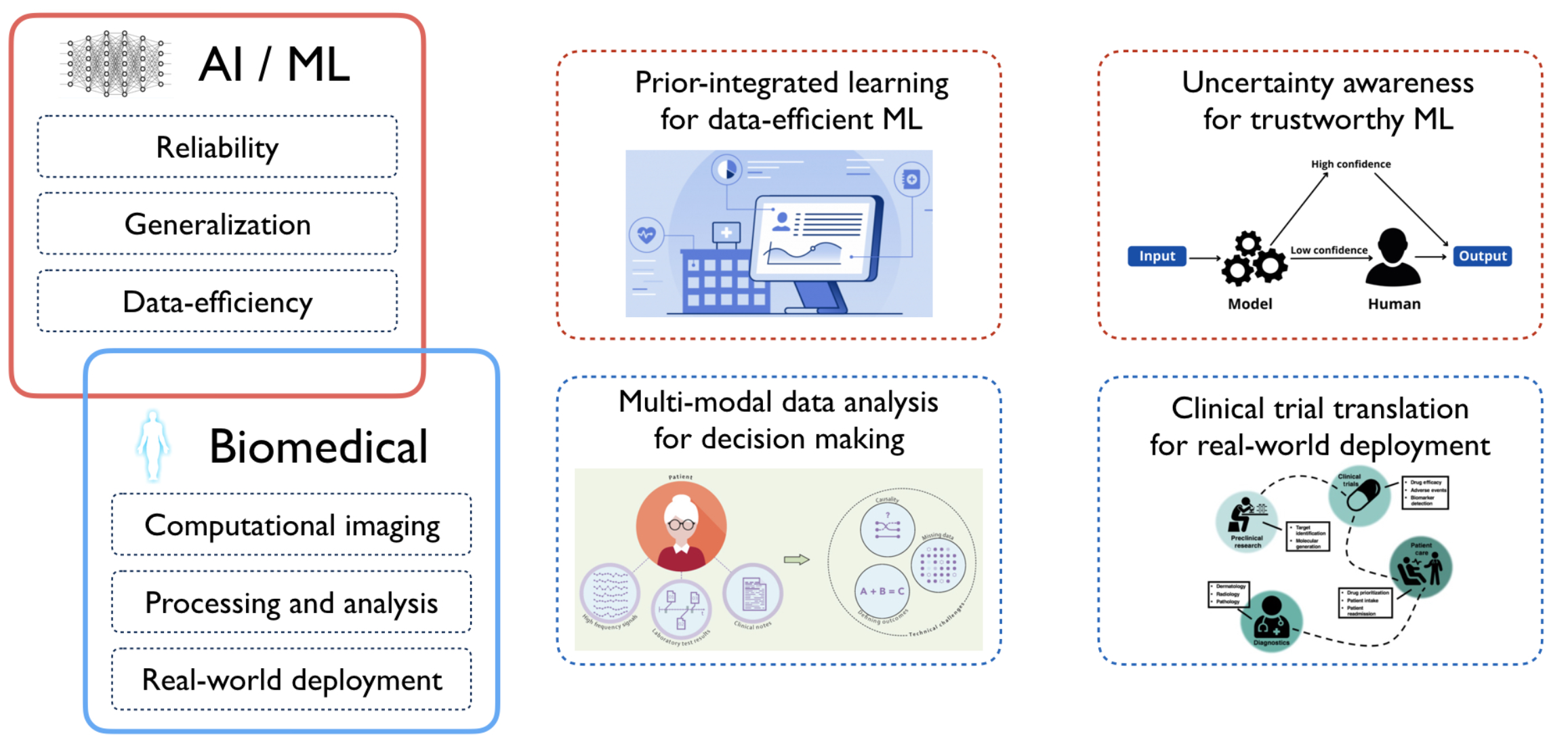My research interest is in Biomedical AI, which lies in the interdisciplinary areas of machine learning, computer vision, signal and image processing, medical image analysis, biomedical imaging, and data science. I am particularly interested in developing efficient and reliable AI/ML-driven computational methods for biomedical imaging and informatics to tackle real-world biomedicine and healthcare problems, including but not limited to, personalized cancer treatment, and precision medicine.

In the field of AI/ML, we focus on developing reliable, generalizable, data-efficient machine learning and deep learning algorithms by exploiting prior knowledge from the physical world, such as: Prior-integrated learning for data-efficient ML Uncertainty awareness for trustworthy ML. In the field of Biomedicine, we focus on developing efficient computational methods for biomedical imaging and biomedical data analysis to advance precision medicine and personalized treatment, such as: Multi-modal data analysis for decision making Clinical trial translation for real-world deployment.
What are some of your most interesting projects?
Our goal is to develop efficient and reliable AI/ML-driven computational methods for biomedical imaging and informatics to tackle real-world biomedicine and healthcare problems. We hope the technology advancement in AI and ML can help us to better understand human health in different levels. Specifically, we develop Biomedical AI in different parts, including:
– AI in Biomedical Imaging: develop novel machine learning algorithms to advance biomedical imaging techniques for obtaining computational images with improved quality. Specifically, relevant topics include but not limited to: Implicit neural representation learning; Diffusion model / Score-based generative model; Physics-aware / Geometry-informed deep learning.
– AI in Biomedical Image Processing and Bioinformatics: develop robust and efficient machine learning algorithms to extract useful information from multimodal biomedical data for assisting decision making and precision medicine. Specifically, relevant topics include but not limited to: Multimodal representation learning; Robust learning with missing data / noisy labeling; Data-efficient learning such as self- / un- / semi-supervised learning with limited data / labels.
How did you end up where you are today?
I am an assistant professor in the ECE Division of the Electrical Engineering and Computer Science department of the College of Engineering, University of Michigan – Ann Arbor. Before this, I received my Ph.D. degree from the Department of Electrical Engineering, Stanford University. I obtained her Bachelor’s degree in Electronic Engineering from Tsinghua University in 2016. I is the recipient of Stanford Bio-X Bowes Graduate Student Fellowship (2019-2022), and was selected as the Rising Star in EECS by MIT and the Rising Star in Data Science by The University of Chicago in 2021.
Accomplishments and Awards
- 2023 Propelling Original Data Science (PODS) Grant Award: Interpretable machine learning to identify tumor spatial features from longitudinal multi-modality images for personalized progression risk prediction of poor prognosis head and neck cancer
